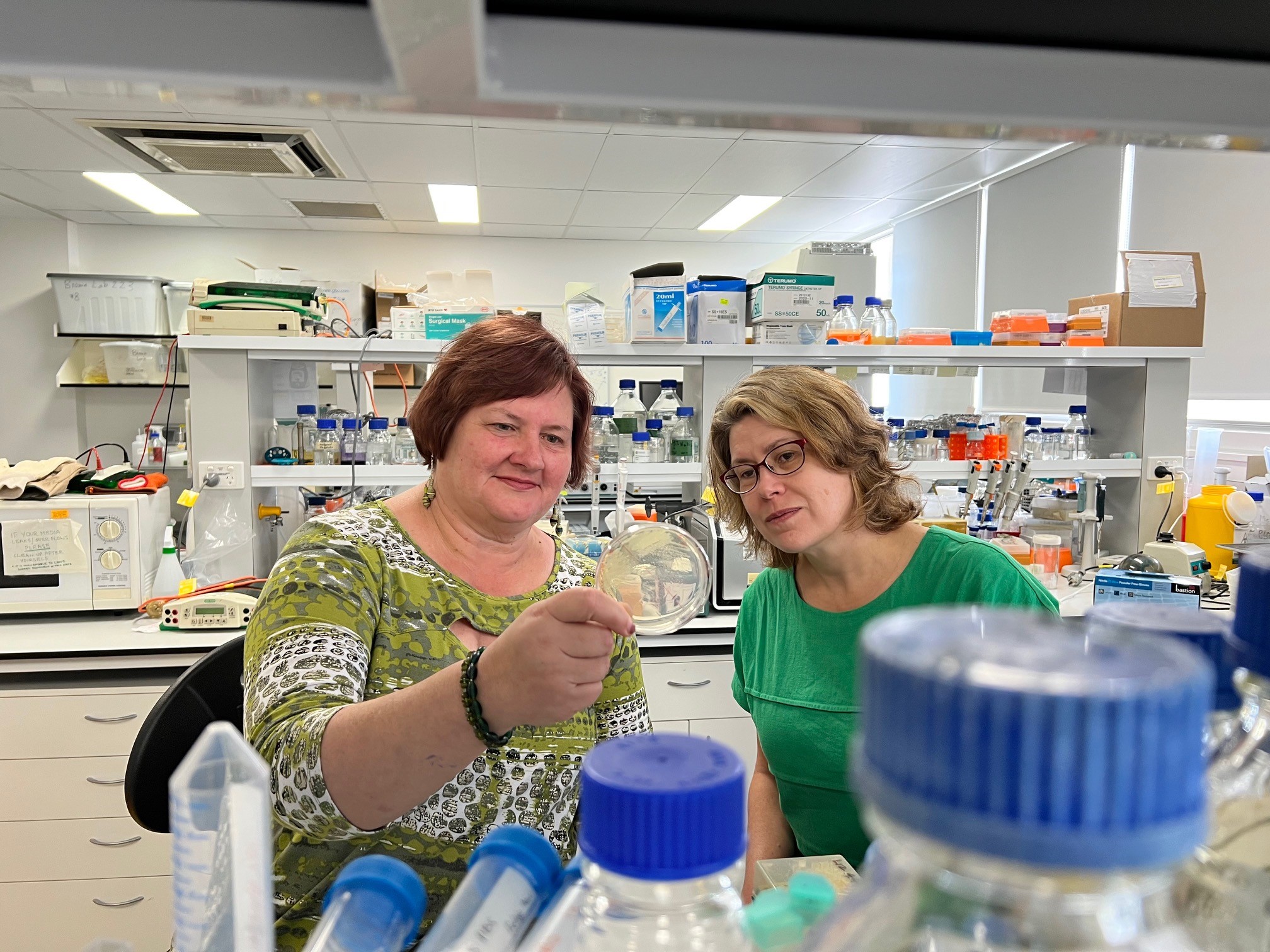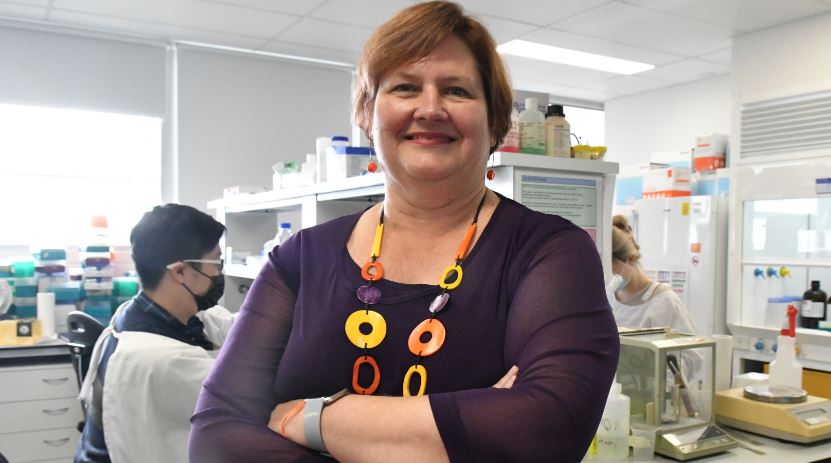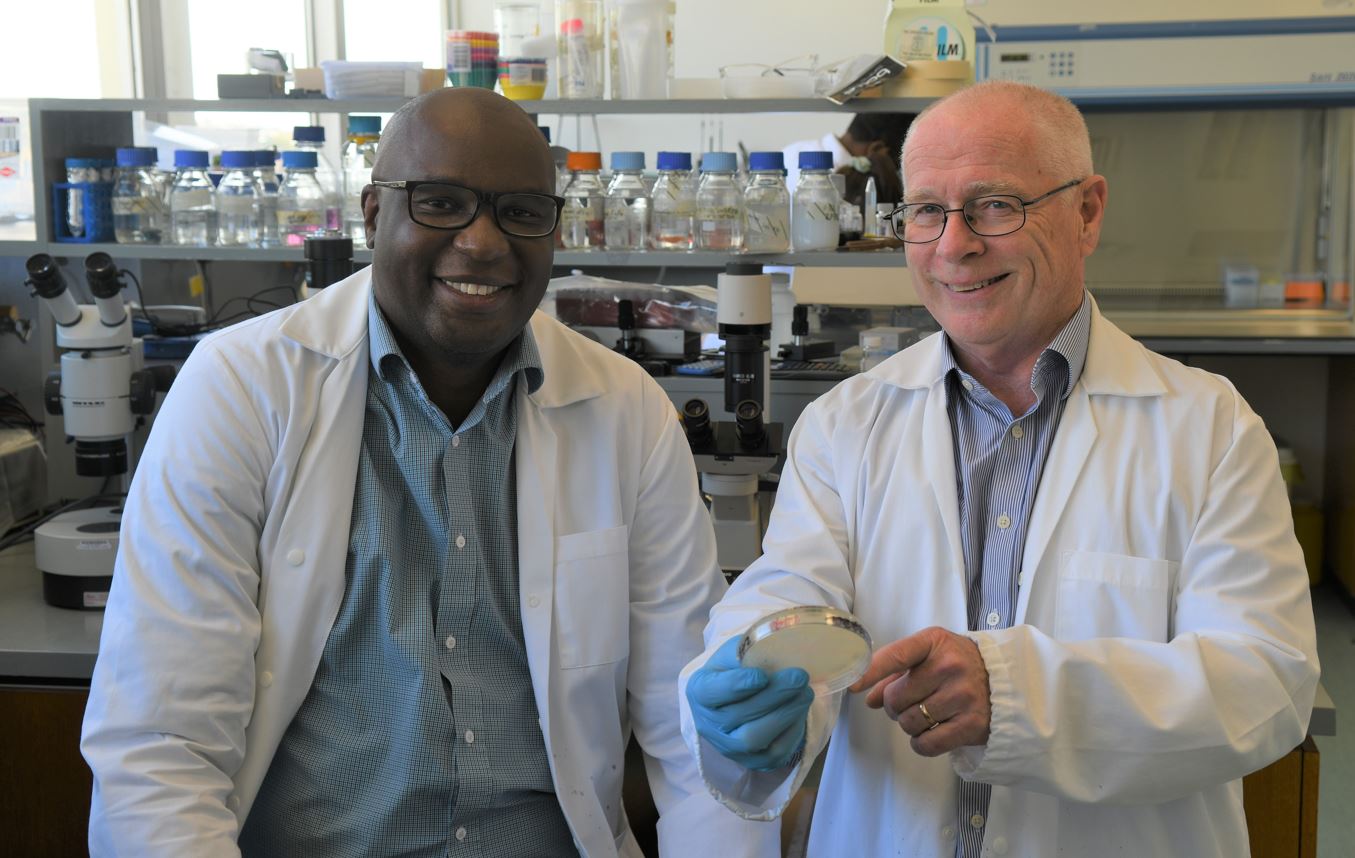
More efficient use of vaccines, investigating ‘superbug’ resistance and an improved treatment for diabetic foot ulcers are the targets of three new innovative research projects at Flinders University.
Funded by almost $3.3 million in Commonwealth Government funding in the latest round of NHMRC Ideas grants, the projects will tackle major health burdens that the world has tackled for centuries.

“Our project involves gaining a deeper understanding of how human gut microbiota regulates individual responses to vaccination,” says Flinders University Professor David Lynn, whose new collaborative project with SA, NSW and WA partners will receive almost $1.6 million over the next four years.
“The gut microbiota is a critical and targetable factor regulating specific and non-specific immune responses to specific and even non-specific (vaccines developed for other pathogens) vaccination in humans, so it has broad applications to make more vaccines work for more people in the future.”
“While animal models have convincingly demonstrated that the gut microbiota plays a critical role in regulating antigen-specific immune responses to vaccination, the evidence in human studies is far less clear.
“So we aim to fill in more of the jigsaw to improve human responses to various vaccines.”

With SAHMRI, SA Health and other collaborators, Professor Lynn’s previous NHMRC Ideas grant has investigated infant microbiome responses to antibiotic use. His team is also joining another new SA project, under the Australian Government ARC Discovery grant program, to look at differences in metabolic responses to dietary fats.
The second NHMRC Ideas Scheme project, of more than $940,000 over four years, will investigate antiseptic and disinfectant resistance in the dangerous bacterial pathogen Staphylococcus aureus or ‘golden staph’.
Golden staph strains have developed resistance to almost all available anti-staphylococcal agents, including antibiotics, antiseptics and disinfectants. Such bacteria can cause serious infections lead to epidemic outbreaks in hospital, aged care, home and other settings where immo-challenged patients reside.
Lead investigator Flinders University Professor of Microbiology Melissa Brown says the project aims to “increase our understanding of proteins that confer resistance by pumping multiple compounds out of the cell to ultimately be able to block their action”.
This builds on evidence that this pathogen and other common health-related bacteria have inbuilt cellular abilities which can lead to multidrug resistance – a problem emerging as a global crisis capable of causing millions of deaths around the world without immediate action.
This study, supported by experts from the University of Queensland, University of Perugia in Italy and Universite Libre de Bruxelles, will focus on understanding the molecular, structural and functional characterisation of S. aureus resistance to almost all anti-staphyloccal agents.

Dangerous infection in diabetic foot ulcers – commonly caused by golden staph, which may be resistant to antibiotic treatments – is the focus of a third 2022 NHMRC Ideas grant led by Flinders University chief investigator Associate Professor Peter Speck.
“Our project aims to develop wound treatments carrying bacteriophages (viruses that kill bacteria) as a safe, effective way to treat wound infections,” says Associate Professor Peter Speck, of the new $736,657.40 two-year grant ‘Bacteriophages: a new paradigm in caring for infected wounds’.
“This will have great impact on treatment of diabetic foot ulcer infections, which currently often lead to amputation, which carries extremely high mortality.
“We hope this research will lead to a new paradigm in wound care and dramatically improve the lives of people with diabetes.”
Other chief investigators on the project include Professor James Mitchell and Associate Professor Billingsley Kaambwa from Flinders University and researchers at La Trobe University and Fixed-Phage Ltd.
Flinders University researchers Associate Professor Savio Baretto and Professor Jacqueline Bowden, from the College of Medicine and Public Health, will also join two other new NHMRC Ideas projects led by UniSA and UNSW respectively. The projects are entitled ‘Targeting desmoglein-2 to reinvigorate anti-tumour immunity’ ($1.12m) and ‘Developing and applying a world-first alcohol market monitoring system’ ($790,147) respectively.

